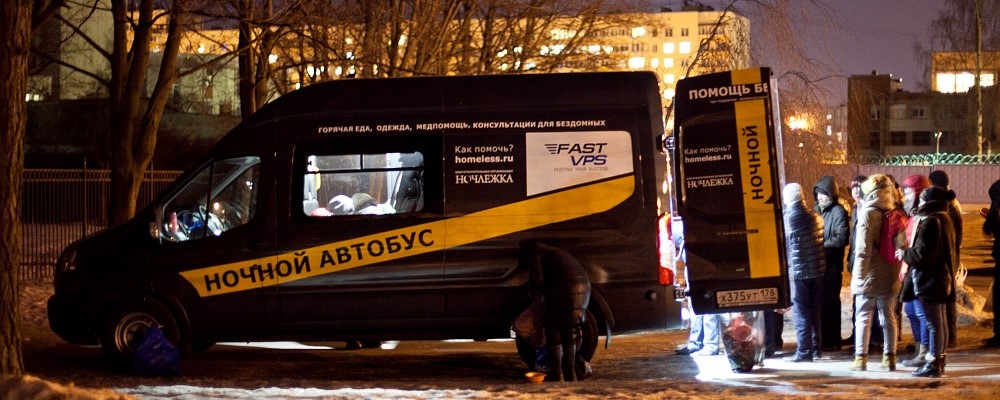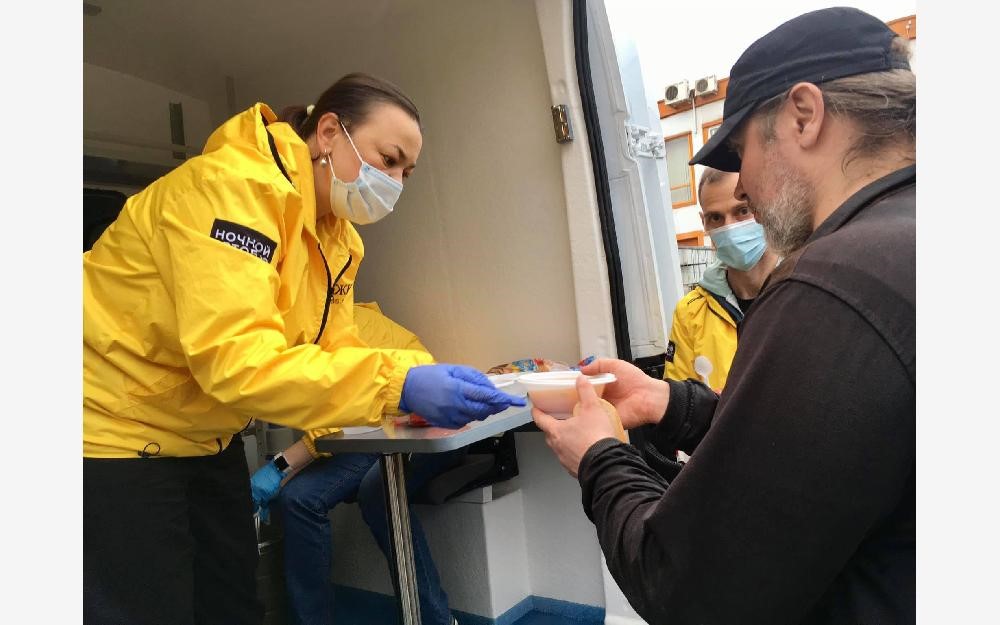By Jessica Baloun
Studying in a foreign country provides the opportunity to experience a new culture, new people, and a new worldview. When I touched down in St. Petersburg, Russia this February, I thought this mostly meant exploring museums and churches, while working also working on my Russian skills. And for the most part, that is what I did during my (albeit shortened) stay in Russia’s cultural capital. However, it wasn’t in the glittering ballroom of Catherine the Great’s palace or the home of Dostoevsky that left the deepest impression on me during my stay. Rather, it was spending seven hours with volunteers I had just met on a bus traveling to the most abandoned and run-down parts of St. Petersburg.
A large part of my life has always been community service—it is an intimate and genuine way of ingraining yourself in a community and hopefully doing some good along the way. While in Oxford, I work as a shopping assistant at the community food pantry. There, I met a diverse group of people who dedicate themselves to helping some of the hardest hit members of the Oxford community. I have come to realize a harsh reality of my college town through helping and talking with a population that is often overlooked by our University-centric community. Understanding the less charming parts of a community is just as vital to understanding a place as viewing its most marketable attractions. And I suppose that is why I was first drawn to taking a ride on the Night Bus.
The Night Bus, is a program run through Nochlezhka—a non-profit started in 1990 aimed at helping provide aid to the homeless community in St. Petersburg. Through the help of volunteer citizens and professions, Nochlezhka (Ночлежка, meaning night shelter) provides temporary and long-term shelters for rough sleepers or those forced to sleep in the streets. The Night Bus project began in 2002 as a way to deliver hot meals to the homeless communities across the city. Volunteers work in the evenings from Monday to Friday delivering over 200 meals along a set route through Petersburg. Additionally, professionals volunteer their time to provide medical treatment as well as legal and social services at these stops.
Before working my shift, I was given a quick tour of their office and facility, where people can seek extended housing and more in-depth services like legal and psychological counseling, job-search assistance, and more advanced medical care. And while these services are vital and make a strong impact on the community, I was more impressed with how invested both the volunteers and employees were with the people they helped. Andrey Chapaev (a full-time employee at Nochlezhka), guided me around the building proudly, making warm conversation with the current residents and introducing me to many of them as well. Chapaev greeted these men and women as if old friends and quickly brought smiles to their faces—something that reminded me of the conversations with the shoppers of the Oxford food pantry.

(Source: https://homeless.ru/en/projects/478/)
As a volunteer, I handed out bread and soup to the lines of people at each stop on the Night Bus. Like clockwork, the bus would pull into one of its designated stops and 40-50 people would already be lining up to receive a hot meal and medical services. While I wasn’t able to speak much to those in line besides asking “белый или черный” —white or black bread—I got to experience a different side of Petersburg and find a connection to work I have done in Ohio.

Nochlezhka,
while quickly becoming an invaluable resource for the some of the most vulnerable
citizens of Petersburg, has faced much pushback since is founding. Attempts for
expansion in Moscow are constantly met with negative reception from both the
public and the government. Many Russians still associate homelessness as a
result of criminal activity, rather than a lack of legislative action and pay
equity.
(Source: https://homeless.ru/en/projects/200381/)
When talking to the other volunteers, many believed working on the Night Bus was a part of their duty as Russian citizens—a way to help their neighbors without a home. Others were previously aided by Nochlezhka and had first-hand experience of the severity of Russian homelessness and the importance of their work there tonight. In return, I talked about my own experiences at the Oxford food pantry and how I appreciated the chance to be more involved in my community. And despite an often-frustrating language barrier, I found common ground through community service.
I rode the Night Bus for just under seven hours. Seven hours in the freezing outskirts of the cultural capital of Russia, past the glittering buildings bustling with activity. Seven hours handing out bread to men and women who would smile as I slipped them an extra cookie or two with their tea. Seven hours of cultural education and connecting with people with the same passions as I have. In seven hours, I learned more about the invisible homeless population than any class could ever teach me. I also learned that there are dedicated people fighting homelessness and poverty—something I hope to continue in my own way here in Oxford.
For more information on Nochlezhka and the Night Bus program, visit: https://homeless.ru/en/
For more information on the Talawanda Oxford Pantry & Social Services, visit: https://sites.google.com/view/topsspantry/about?authuser=0
Jessica Baloun is a senior majoring in International Studies and History with a minor in Russian.
